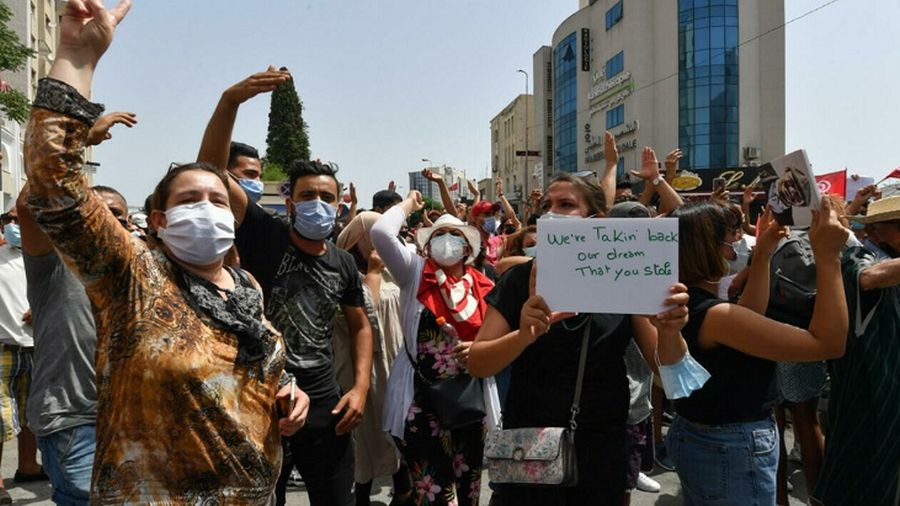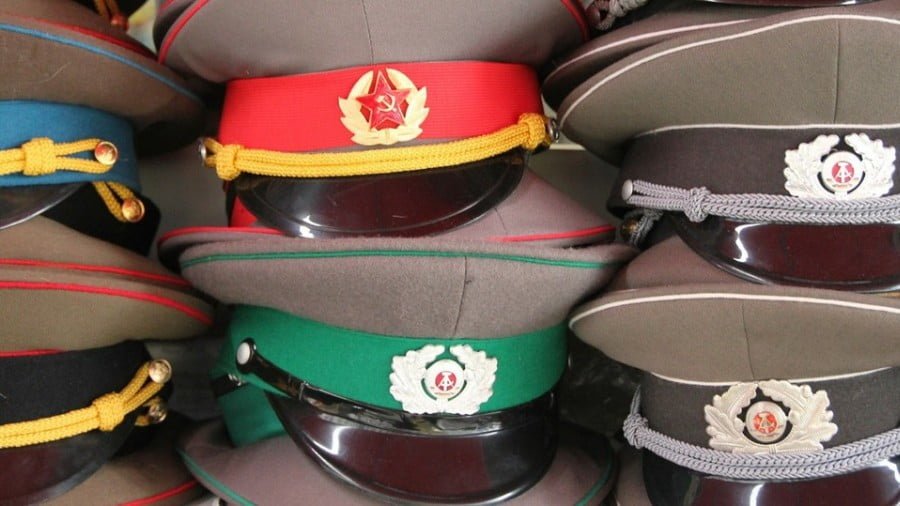The Crisis, the Pandemic, and the Realities of Tunisia
After its president, Kais Saied, ousted the prime minister, dissolved parliament for a month, and stripped deputies of their immunity, the situation in Tunisia remains a top story in the media landscape of the country and the region.
These decisions were announced against the backdrop of public protests on July 25, as the population at large remains dissatisfied with the socio-economic hardships and the incapability of those at the top in the fight against the Covid pandemic. Tunisia has one of the highest death rates because of coronavirus in the world.
The head of state’s emergency measures were taken, as he stated, under Article 80 of the constitution. Some see these steps as “correcting the course of the revolution” (referring to the 2011 Jasmine Revolution), while others qualify them as a “coup” directed “against the revolution and the constitution.” In this vein spoke the speaker of the temporarily frozen Tunisian parliament, the leader of Ennahda Movement, an Islamist Democratic Party, Rachid al-Ghannouchi.
The power crisis was triggered by disagreements and conflicts between the president, parliament, and the government. The master of Carthage palace (President Kais Saied’s residence) repeatedly criticized MPs for actions that caused conflicts between the various parliamentary blocs and contributed to the chaos.
At the same time, many experts blame the Islamist Ennahda Movement for social dislocation, deteriorating security, amateurish governance, etc. It has been the leading force, in fact, in all of the ten governments that have existed since 2011. In the first multi-party elections to the National Constituent Assembly (NCA), the organization won the most seats, almost 42%. But in subsequent parliamentary elections, it kept losing them: in 2014 to 28%, and in 2019 to 25%. Nevertheless, Ennahda remains the largest party in the current parliament.
The Islamists are in a mosaic society where there remains the significant influence of archaic social relations and lifestyles as well as hallowed conservative traditions.
The current crisis highlights the question of the compatibility of democracy with the values of a Muslim country. Several commentators point out that attention should be paid to the realities of the society, the solution of urgent problems, moving away from loud statements and pompous rhetoric. People are fed up with politics and ideology and the struggle within the party community over the past ten years, concludes a local analyst. There are 209 registered parties in the country.
Despite being an instrument of activity, democracy in their hands has become a fruitless game. They used it to advance their narrow interests. Ennahda was at the forefront. The product it tried to market to its consumers over the years was an ideology and nothing more.
Today, according to the weekly Realites, many Tunisians were relieved after the president’s measures highlighted the “historical bankruptcy of Ennahda and its leader.” 87% of Tunisians supported the head of state, according to a poll conducted by le Emhrod Consulting at the end of July this year.
The media are now covering the president’s activities, as he is recruiting new personnel at various levels to eliminate “corrupt officials,” combating the high cost of essential consumer goods, and strengthening measures to counteract the coronavirus.
Some notice that new appointments are taken from employees who are at least 60 years old. Most of them had careers under the previous system before 2011. Which begs the question of whether they will be able to readjust quickly in light of the aspirations of the disgruntled masses who are hungry for change.
To get out of the situation, it is recommended that the public and private sectors develop equally. The top rulers after the revolution were betting on the public sector, seeking to pump it full of money so that it would absorb as many of the unemployed as possible. But this bet placed a burden on the budget and increased dependence on foreign injections. Several experts demand a clear roadmap of reforms from the president.
In recent days, there seems to have been hints from Ennahda of a certain softening of its stance on the president’s demarche, as evidenced by the creation of an internal interim committee to deal with the current political crisis.
It is a well-known fact that the Arab Spring began in Tunisia: a wave of demonstrations toppled the former regime there. Tunisia, unlike the rest of the Arab states, managed to get away with few losses.
Commentators note with satisfaction that the president puts “the horse of the economy ahead of the political cart” in the interests of the Tunisians’ right to a decent life and a piece of bread. This university professor, a self-nominee, did not represent any party or organization and was elected two years ago by citizens who had lost faith in the politics of parties and elites. Tunisians’ expectations for improvement in all areas are immeasurably high.
Whether his experience will be successful and whether the country will find its key to solving problems without violence or other overreaches, only time will tell.







